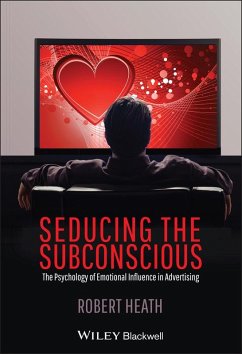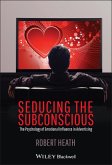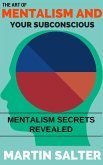Dieser Download kann aus rechtlichen Gründen nur mit Rechnungsadresse in A, B, BG, CY, CZ, D, DK, EW, E, FIN, F, GR, HR, H, IRL, I, LT, L, LR, M, NL, PL, P, R, S, SLO, SK ausgeliefert werden.
"Heath's book is far more persuasive than any advertisement, no matter how top-loaded the latter may be with accurate information. His thesis depends on a lengthy journey through cognitive science and evolutionary psychology, and a firm grasp on how - so far as we know - the human mind actually does work (rather than how we would like it to work). Heath demonstrates quite clearly - at least to my satisfaction - that it is precisely when we pay no conscious attention to advertising that advertisers get to work on our subconscious with complete effectiveness." WILL SELF, Prospect, June 2012
"(Heath) avoids academic obscurantism and fills the book with clever dissections of well-known ads... The case studies add up to an intriguing, down-to-earth introduction to the mysteries of the subconscious..." -- Financial Times, March 2012
"Dr Robert Heath, who teaches at the University of Bath, has popularised the theory of 'low attention processing', which argues that ads make a stronger emotional and behavioural impact when we are paying less conscious attention to them. In his new book, Seducing the Subconscious, he further develops this thinking, providing a detailed and scholarly explanation of the psychological processes involved, and illustrating these with advertising examples, many based on his own long experience in ad agencies." -- Paul Feldwick, Credos, March 2012









